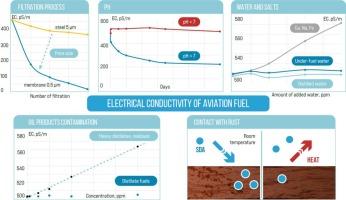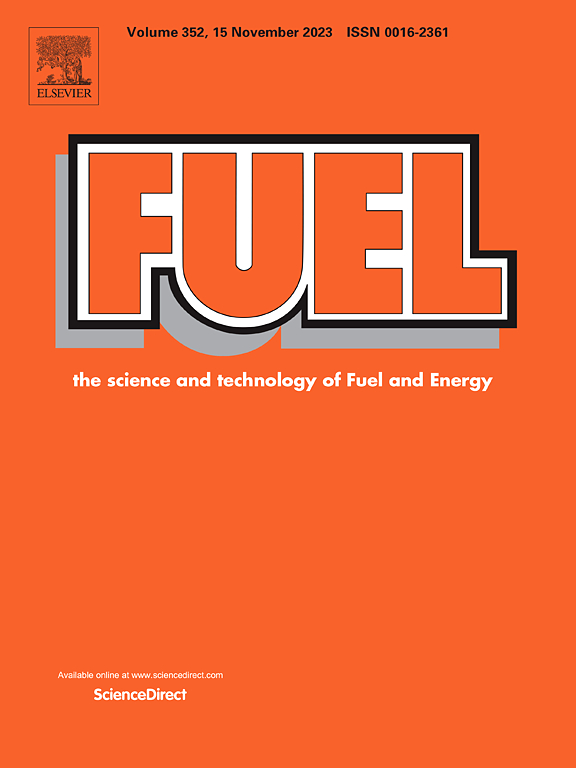航空燃料在运输和储存条件下的电导率稳定性评价
IF 7.5
1区 工程技术
Q2 ENERGY & FUELS
引用次数: 0
摘要
本研究研究了在添加和不添加抗静电添加剂的情况下,在运输过程中影响航空煤油电导率(EC)的因素,即:温度和燃料粘度的变化、燃料过滤、与不同pH值的水和含水盐溶液的接触、溶解水的存在、其他石油产品的污染、燃料氧化以及与腐蚀表面的接触。燃油粘度是影响其导电性的孤立因素。已证明燃料的电导率与其粘度的倒数呈线性关系。过滤不影响燃油无添加剂;然而,由于活性添加剂成分在滤芯上的吸附,它会导致含有添加剂的燃料的EC降低。与酸性水接触会导致有添加剂的燃料的EC数倍降低,而没有添加剂的燃料的EC数倍增加。当添加剂存在时,溶解水中金属盐的存在会导致EC的增加。由于极性化合物含量较高,重质石油产品的污染促进了EC的增加。研究表明,铁锈会强烈吸附添加剂成分,降低燃料的导电性;然而,在加热时观察到它们的解吸。燃料氧化导致EC暂时升高,随后趋于稳定。本文章由计算机程序翻译,如有差异,请以英文原文为准。

Evaluation of electrical conductivity stability in jet fuels under transport and storage conditions
This work investigates the factors affecting the electrical conductivity (EC) of aviation kerosene during transportation, both with and without the addition of antistatic additives, namely: changes in temperature and fuel viscosity, fuel filtration, contact with water of varying pH and aqueous salt solutions, presence of dissolved water, contamination by other petroleum products, fuel oxidation, as well as contact with corroded surfaces.
The isolated factor of fuel viscosity influences its electrical conductivity. A linear dependence of the fuel’s electrical conductivity on the reciprocal of its viscosity has been demonstrated. Filtration does not affect fuel without additives; however, it causes a decrease in EC of fuels containing additives due to adsorption of active additive components on the filter elements. Contact with acidic water leads to a multiple decrease in EC in fuel with additives and a multiple increase in fuel without additives. The presence of metal salts in dissolved water contributes to an increase in EC when additives are present. Contamination with heavy petroleum products promotes an increase in EC due to a higher content of polar compounds. It has been established that rust intensively adsorbs additive components, reducing the fuel’s electrical conductivity; however, their desorption is observed upon heating. Fuel oxidation results in a temporary increase in EC followed by stabilization.
求助全文
通过发布文献求助,成功后即可免费获取论文全文。
去求助
来源期刊

Fuel
工程技术-工程:化工
CiteScore
12.80
自引率
20.30%
发文量
3506
审稿时长
64 days
期刊介绍:
The exploration of energy sources remains a critical matter of study. For the past nine decades, fuel has consistently held the forefront in primary research efforts within the field of energy science. This area of investigation encompasses a wide range of subjects, with a particular emphasis on emerging concerns like environmental factors and pollution.
 求助内容:
求助内容: 应助结果提醒方式:
应助结果提醒方式:


